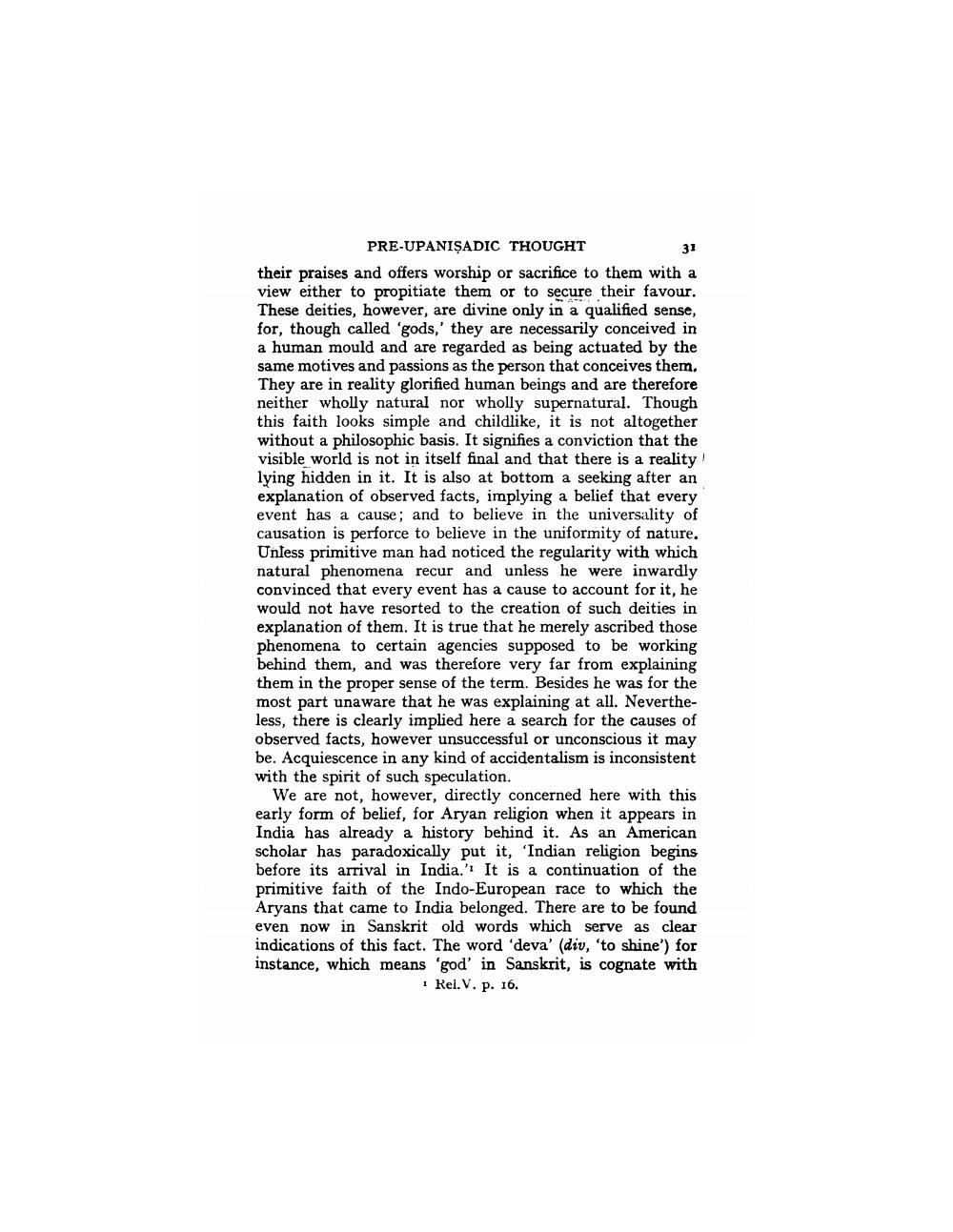________________
31
PRE-UPANIŞADIC THOUGHT their praises and offers worship or sacrifice to them with a view either to propitiate them or to secure their favour. These deities, however, are divine only in a qualified sense, for, though called 'gods,' they are necessarily conceived in a human mould and are regarded as being actuated by the same motives and passions as the person that conceives them. They are in reality glorified human beings and are therefore neither wholly natural nor wholly supernatural. Though this faith looks simple and childlike, it is not altogether without a philosophic basis. It signifies a conviction that the visible world is not in itself final and that there is a reality! lying hidden in it. It is also at bottom a seeking after an explanation of observed facts, implying a belief that every event has a cause; and to believe in the universality of causation is perforce to believe in the uniformity of nature. Unless primitive man had noticed the regularity with which natural phenomena recur and unless he were inwardly convinced that every event has a cause to account for it, he would not have resorted to the creation of such deities in explanation of them. It is true that he merely ascribed those phenomena to certain agencies supposed to be working behind them, and was therefore very far from explaining them in the proper sense of the term. Besides he was for the most part unaware that he was explaining at all. Nevertheless, there is clearly implied here a search for the causes of observed facts, however unsuccessful or unconscious it may be. Acquiescence in any kind of accidentalism is inconsistent with the spirit of such speculation.
We are not, however, directly concerned here with this early form of belief, for Aryan religion when it appears in India has already a history behind it. As an American scholar has paradoxically put it, 'Indian religion begins before its arrival in India.'ı It is a continuation of the primitive faith of the Indo-European race to which the Aryans that came to India belonged. There are to be found even now in Sanskrit old words which serve as clear indications of this fact. The word 'deva' (div, 'to shine') for instance, which means 'god' in Sanskrit, is cognate with
1 Rel. V. p. 16.




